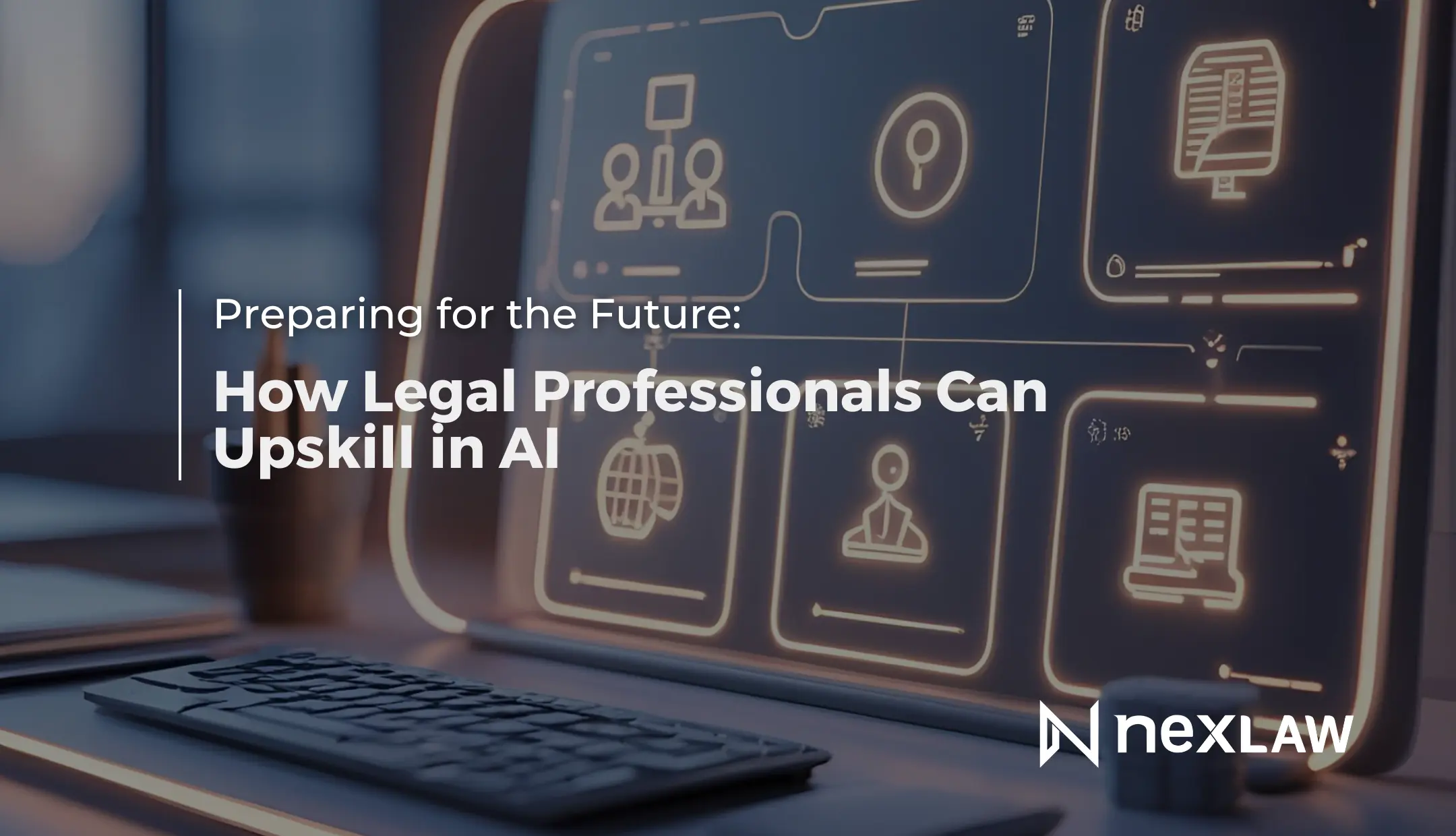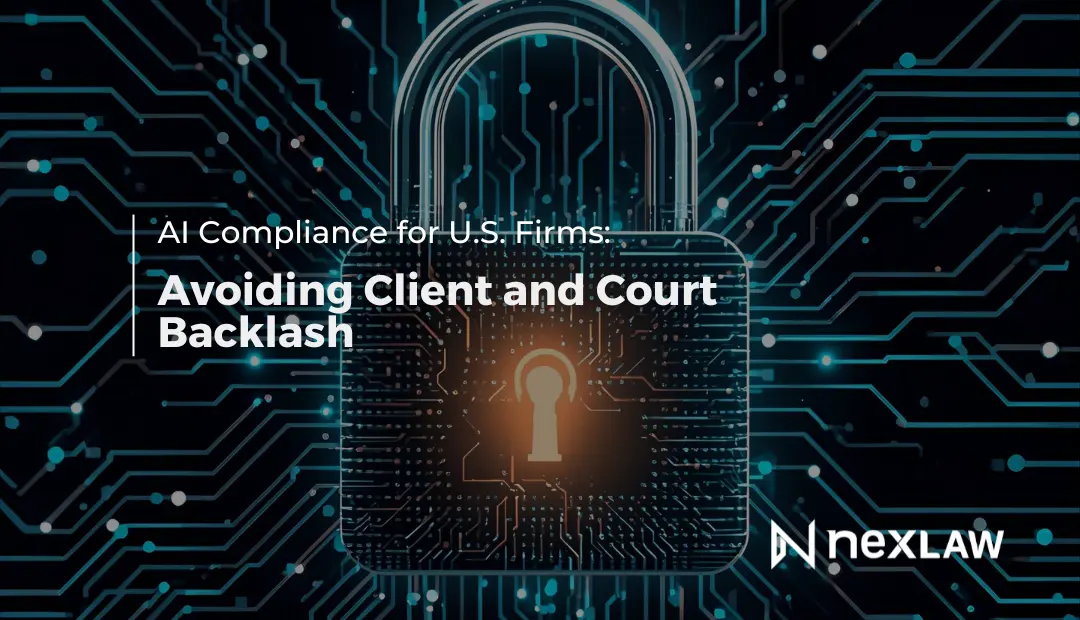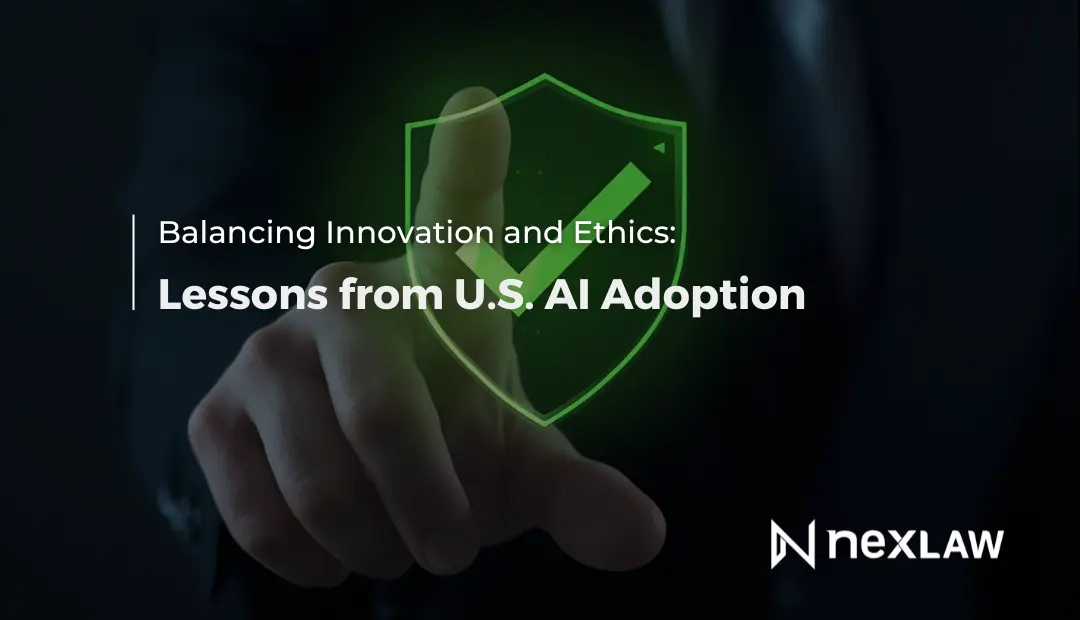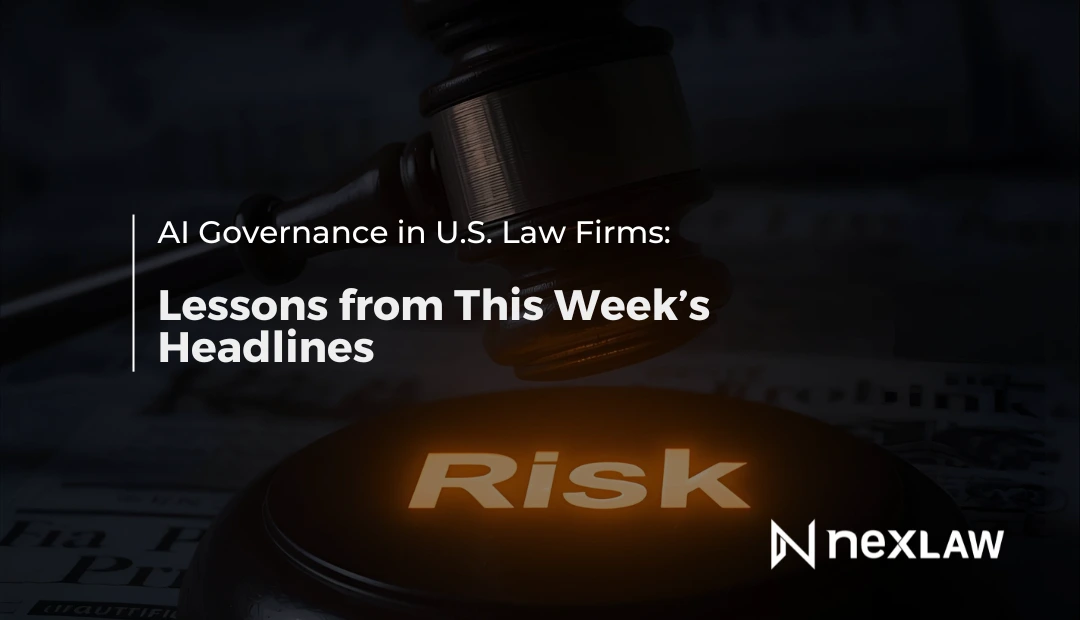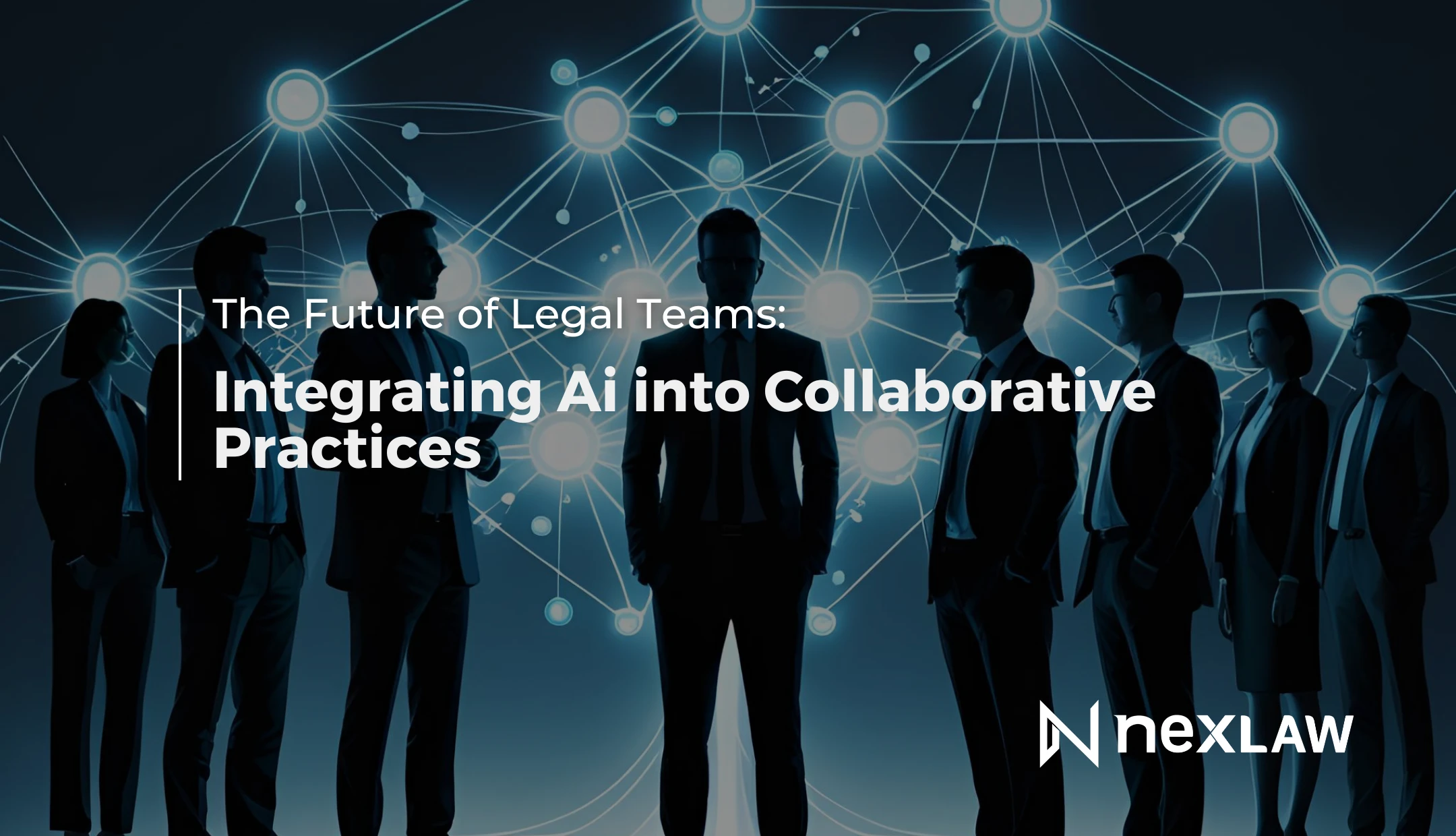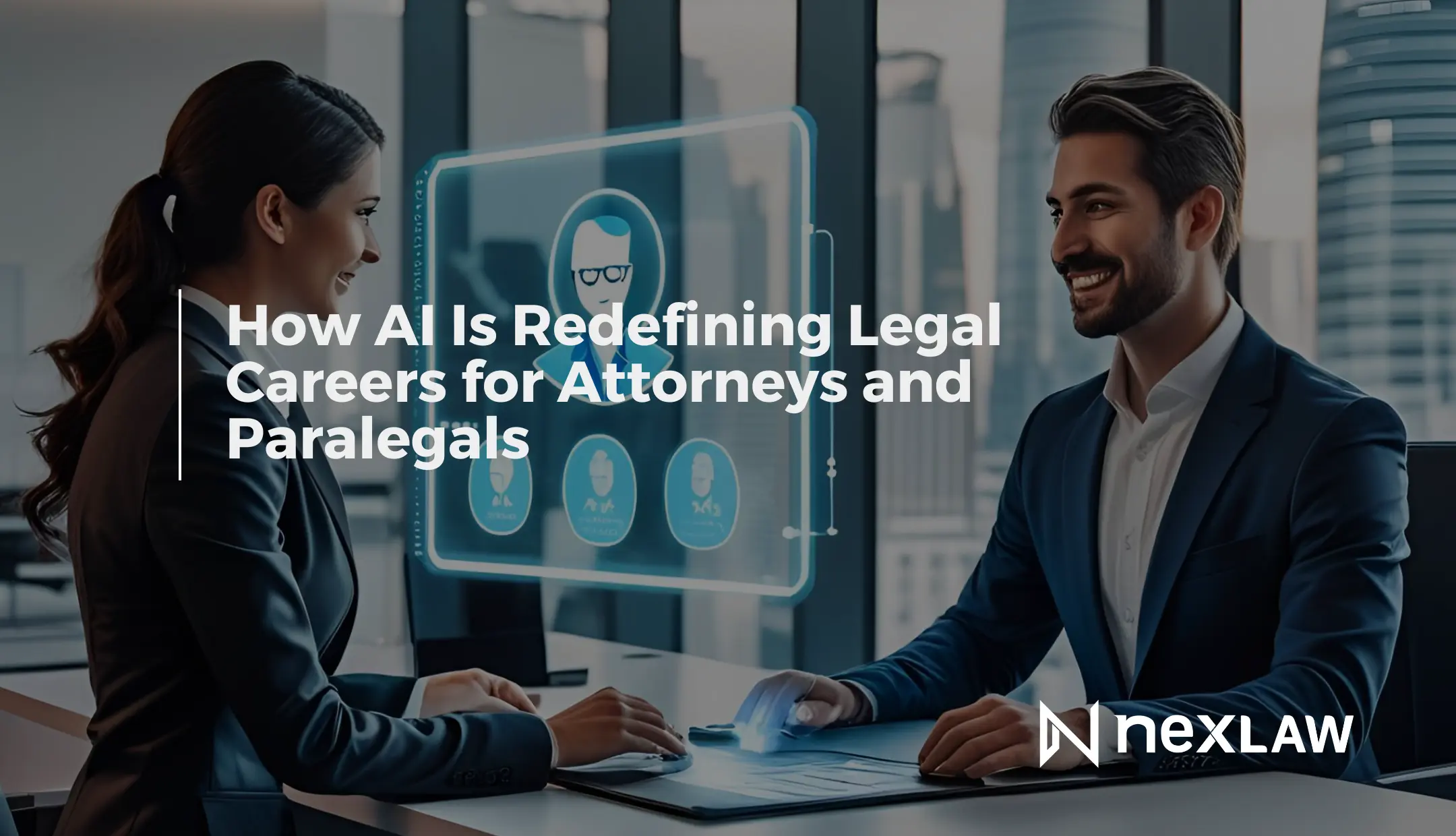Preparing for the Future: How Legal Professionals Can Upskill in AI
Artificial intelligence (AI) is reshaping the legal industry across the United States. From law firms to corporate legal departments, AI is changing how lawyers and paralegals manage cases, conduct research, draft documents, and strategize for litigation. Legal teams that adopt AI responsibly can improve efficiency, enhance accuracy, and maintain competitiveness while staying fully compliant with ethical standards.
With law firms increasingly incorporating AI into daily practice, attorneys and paralegals who build expertise in these tools position themselves for faster career growth, expanded responsibilities, and enhanced client service.
Unlock Legal Insights Instantly!
Why AI Competence Matters for Lawyers and Paralegals
AI tools can automate repetitive tasks, improve research efficiency, and provide predictive insights that inform legal strategy. Lawyers and paralegals who adopt AI in their workflows gain a strategic advantage in law firms and corporate legal departments.
Key benefits of AI competence for legal professionals include:
- Enhanced efficiency: Automating research, document review, and drafting frees lawyers and paralegals to focus on strategic work.
- Improved accuracy: AI helps reduce human error, especially in data-intensive tasks such as contract review or discovery.
- Career growth: Professionals who demonstrate AI fluency are increasingly valued in law firms, positioning them for promotions and leadership opportunities.
- Client satisfaction: Faster, more accurate work strengthens client trust and improves service delivery.
For paralegals, AI enables a shift from administrative support to strategic contribution. By automating routine document review and data analysis, paralegals can focus on high-level responsibilities such as supporting litigation strategy, preparing trial materials, and assisting lawyers in complex case work.
How Legal Professionals Can Upskill in AI
Upskilling in AI requires a combination of structured education, hands-on practice, and ongoing learning. Lawyers and paralegals can adopt multiple approaches to build practical AI expertise:
1. Structured Training Programs
Many law schools and continuing legal education (CLE) programs now offer AI-focused courses. These programs often include scenario-based exercises that allow legal professionals to practice AI-assisted research, drafting, and case management.
Practical examples of structured training include:
- Reviewing contracts for compliance and risk issues using AI tools.
- Analyzing litigation trends and historical case data to support strategy.
- Drafting pleadings, motions, or discovery documents with AI-assisted guidance.
Structured training ensures that law firm staff can apply AI confidently and ethically in real-world scenarios.
2. Online Certifications and Workshops
Online programs provide certifications focused on AI in legal practice, covering workflow automation, predictive analytics, and ethical compliance. These certifications demonstrate to law firms and clients that lawyers and paralegals have both practical knowledge and applied skills.
3. Self-Guided Learning
Self-paced learning allows attorneys and paralegals to acquire AI skills without disrupting daily work. AI platforms often include interactive tutorials and guided modules, combining theory and application seamlessly. This method is particularly useful for law firm staff who wish to integrate AI gradually into their workflow.
Real-World Impact of AI on Legal Careers
AI adoption is transforming the career landscape for lawyers, paralegals, and law firm staff:
- Career advancement: AI-proficient professionals are more likely to take on strategic roles, lead projects, and influence case outcomes.
- Efficiency gains: Automating routine research and document review allows legal teams to spend more time on complex analysis, litigation strategy, and client interactions.
- Improved client outcomes: Law firms with AI-enabled teams deliver faster, more accurate results, enhancing client satisfaction.
- Expanded skillsets: Lawyers and paralegals develop tech fluency, data literacy, and strategic thinking skills that are increasingly essential in law practice.
Ethical and Compliance Considerations
While AI provides efficiency gains, lawyers and paralegals must maintain professional responsibility and comply with ethical standards:
- Confidentiality: Client information must remain secure when using AI tools. Law firms should ensure data is encrypted and access is controlled.
- Bias awareness: AI outputs should be reviewed carefully to prevent the introduction of biases based on historical data or training inputs.
- Professional accountability: Lawyers and paralegals remain responsible for all legal work and decisions, even when AI is used to assist research or drafting.
Maintaining compliance while adopting AI enhances professional credibility and ensures law firms meet regulatory obligations.
Practical Steps for Upskilling in AI
Legal professionals can take several steps to develop AI proficiency:
- Assess current skills: Identify knowledge gaps in AI tools and legal technology.
- Choose the right AI platforms: Select platforms designed for legal research, document review, and litigation support.
- Apply learning in practice: Integrate AI into daily workflows at law firms to gain practical experience.
- Stay informed: AI technologies, ethics, and regulations evolve quickly, making continuous education essential.
By combining structured education with real-world application, lawyers and paralegals can leverage AI to improve performance and career potential.
AI’s Role in Strategic Career Development
AI is not just a tool, it is a career accelerator. Lawyers who use AI effectively can devote more time to strategy, case analysis, and client interactions. Paralegals can expand into roles that include predictive analytics, compliance monitoring, and case strategy support.
Law firms benefit when staff are AI-literate: teams become more efficient, clients experience faster case resolution, and professionals demonstrate innovation and adaptability. AI fluency is increasingly recognized as a core competency for success in legal practice.
Preparing for the AI-Driven Legal Industry
Lawyers and paralegals who adopt AI tools early are positioned for long-term career growth. Proficiency in AI helps legal professionals:
- Take on strategic roles within law firms.
- Improve workflow efficiency and client service.
- Demonstrate leadership and adaptability.
- Uphold ethical and compliance standards while leveraging technology.
In a rapidly evolving legal environment, AI literacy is becoming essential for lawyers and paralegals to remain competitive, effective, and valued in their law firms.
Conclusion
Artificial intelligence is transforming the legal industry. For lawyers, paralegals, and law firm staff, developing AI skills is essential to maintain efficiency, accuracy, and strategic impact. By combining structured training, hands-on practice, and ethical awareness, legal professionals can leverage AI to enhance productivity, expand responsibilities, and advance their careers.
AI is not replacing lawyers or paralegals, it is empowering them to deliver better results, strengthen client relationships, and thrive in the evolving legal landscape.
Take the Next Step with NexLaw
Lawyers who embrace AI today are shaping the legal profession of tomorrow. Whether you’re part of a litigation team, a solo attorney, or a paralegal eager to expand your role, NexLaw makes it possible.
NexLaw is designed to help paralegals and attorneys solo or from small and mid-size prepare cases more efficiently, with greater accuracy and strategic insight.
Book a Guided Demo — See how NexLaw fits seamlessly into your practice and transforms your workflows.
Start a Free 3-Day Trial — Explore NexLaw risk-free and experience firsthand how AI can enhance efficiency, accuracy, and client satisfaction.
GET 15% OFF for annual plans using promo code: ANNIV15MONTHLY or ANNIV15ANNUALY
*t&c applied | visit our website for more details
With NexLaw, the future of litigation is here - AI-powered, accurate, and accessible.
